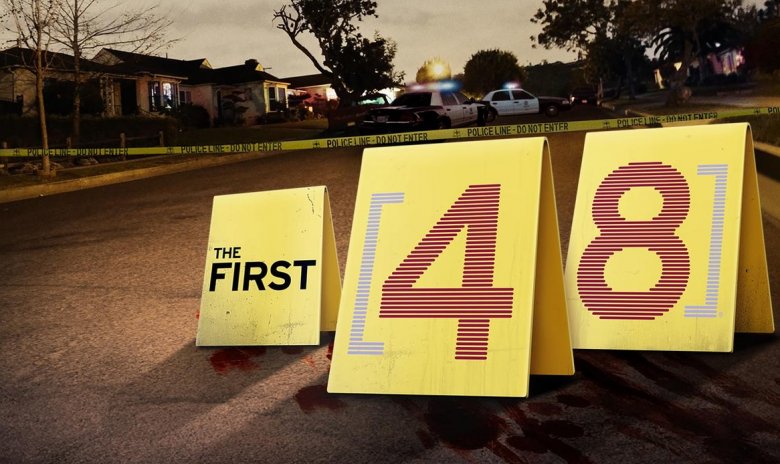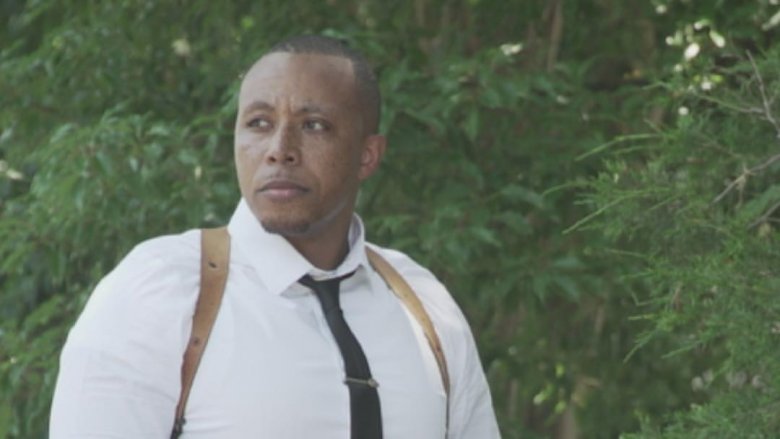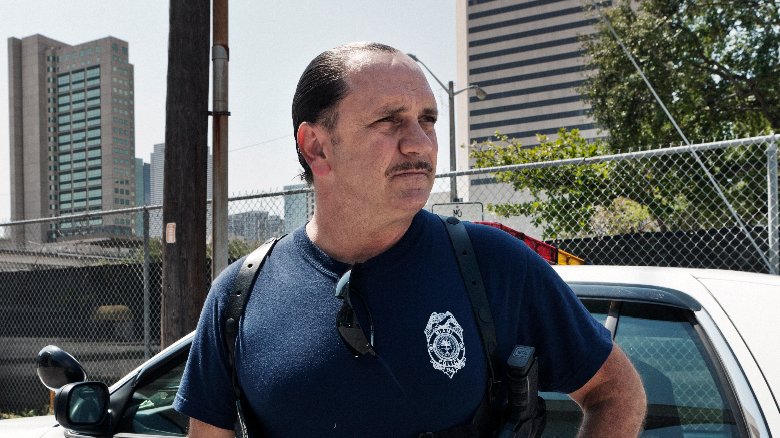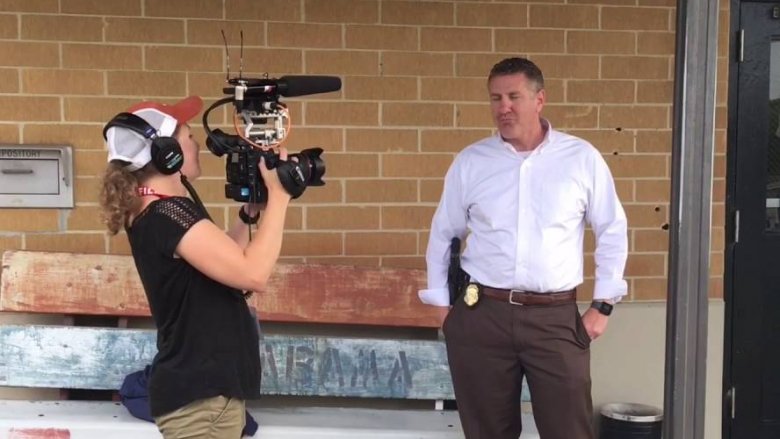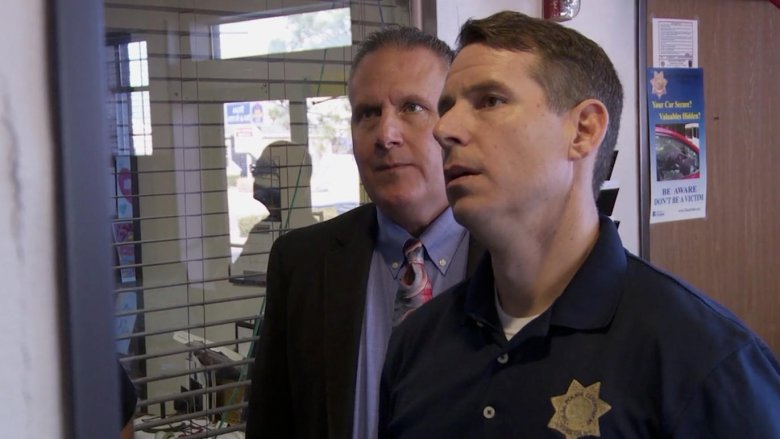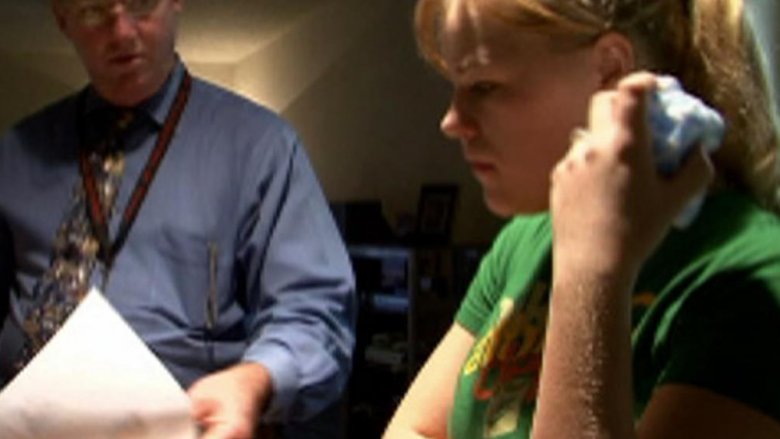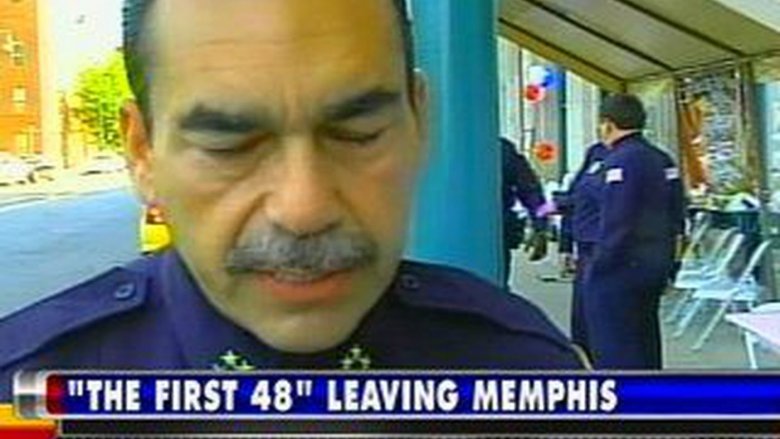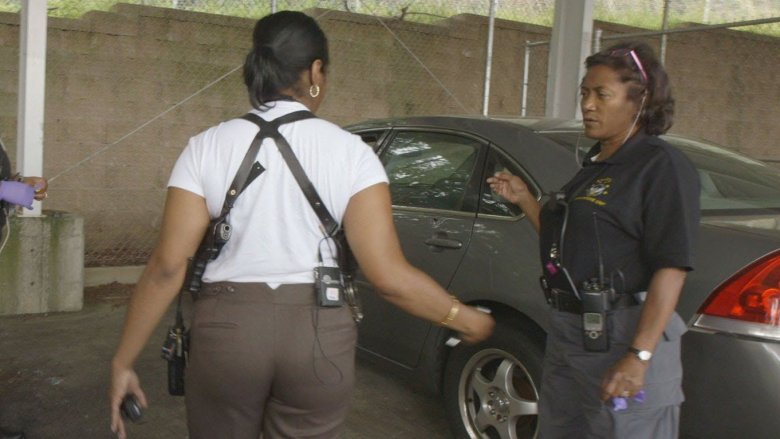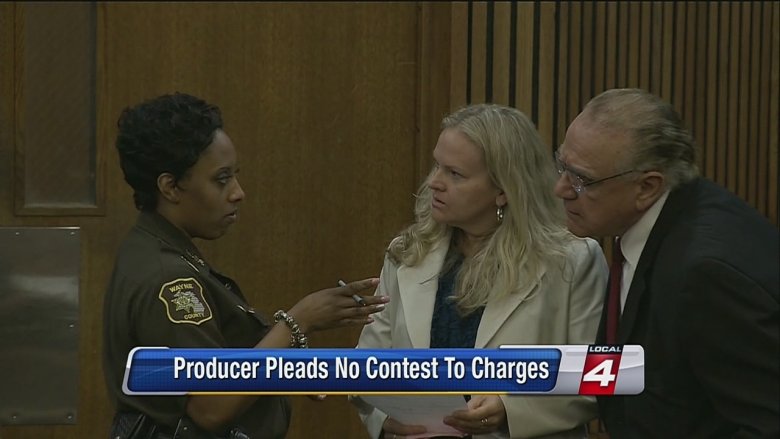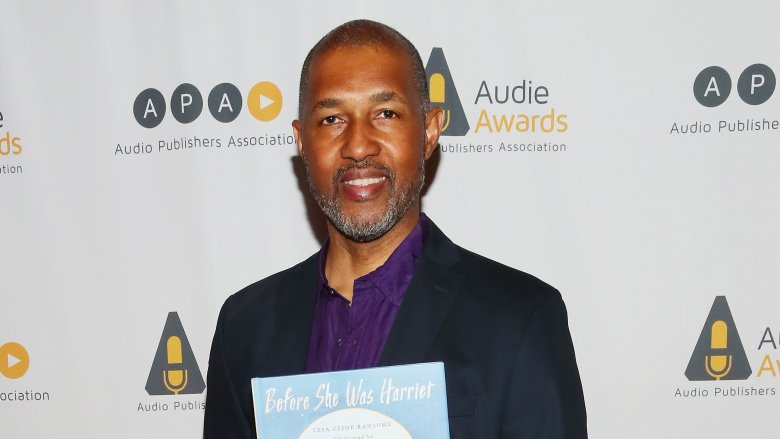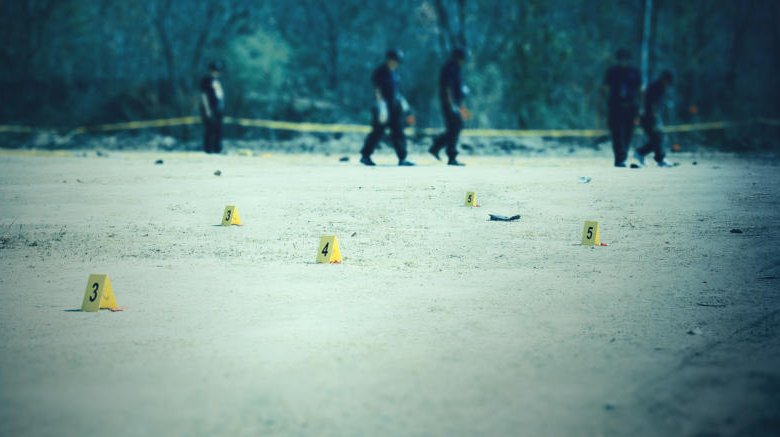The Untold Truth Of The First 48
We may receive a commission on purchases made from links.
The First 48 has enthralled viewers since 2004 by documenting homicide squads' lives and jobs across more than a dozen cities. Its ride-along format provides an unprecedented look into the nitty-gritty of homicide work: endless hours meticulously combing a crime scene with the victim's body cooling beside them, phone call after phone call tracking down potential witnesses or informants, and death notifications to victims' families, often cited as the single most difficult part of working in homicide. It's a difficult and dangerous job, and including the extra liability of a film crew in tow makes it even more complicated.
With that unique access comes unique challenges and criticisms that, especially given today's greater political issues around law enforcement, have given the show somewhat of a mixed legacy in the annals of true crime media. It's become enough of an institution on A&E to sprout specials and spinoffs, but how much do you know about the people both on and behind the cameras? This is the untold truth of The First 48.
From stopping crimes to slinging rhymes
In 2018, Detective Rayell Johnson of the New Orleans police department adopted the alter-ego "Ray-L" and wrote his very own rap song, entitled "9ine to 5ive." A local music producer helped him make a video for it, which you can watch on YouTube. The footage is delightfully tongue-in-cheek — it opens with a traditional New Orleans funerary band following Detective Rayell on a death investigation call while bewildered onlookers gawk — and utilizes title cards and graphics that are very similar to First 48's scene transitions.
While most of the detectives featured on the show keep relatively private social media presences under locked accounts, Johnson is publicly accessible via Twitter (@supadupaman) and on Instagram (@504robocop). Show production has since left the city, but he keeps a healthy following of First 48 fans to this day and posts selfies with others in his department to his Instagram account, should you miss seeing him and his squad on the show.
The franchise OG
The first couple seasons of The First 48 were filmed in Miami, the original anchor city, and at its heart was Lieutenant Joe Schillaci, a veteran detective on the homicide squad. Early episodes focused heavily on Schillaci — he even recorded some voiceover narration reflecting on his career and how his PTSD affected him on the job. He went on to write a book about his struggle in greater detail.
As the show matured and expanded, this focus shifted; eventually, Schillaci was promoted out of the department several years before production left Miami. He retired in 2013 as a Deputy Commander, and the following year, he starred in a short-lived true crime program called Dead Again. Its premise presented Schillaci and other skilled detectives with closed and controversial murder cases they did not previously know about and had them reconstruct the clues to see if they arrived at the same conclusion as the original conviction. Today, he enjoys semi-retirement and contracts as a private investigator and public speaker in, of all places, Kansas.
A public service sometimes complicated
None of the officers portrayed in The First 48 are paid, nor do their departments receive any compensation (though you will, on occasion, see little bits of First 48 production swag on officers' desks, like hats, stickers, or water bottles). Participating police departments are, by and large, perfectly happy with this arrangement and consider it a good public service to help citizens understand homicide investigation more deeply. This did, however, contribute to the show's departure from Miami — its original city and its most popular homicide squad by far.
For nine years, Broward County and First 48 production staff operated in mutual appreciation, but in 2013, Miami's top brass approached the producers with a deal that included donating a pre-set amount of show proceedings to a law enforcement-organized volunteer softball league for at-risk minors as a token of giving back to the county in which they had worked in for so long. After some back-and-forth, no agreement could be reached, though police chiefs of staff have publicly insisted that any new contract remains an option to production staff in the future.
When reality and tragedy meet
The First 48 is billed as reality TV, which is absolutely true, but it perhaps earns that descriptor a little more thoroughly and with more visceral consequences than your average episode of The Bachelor. To say there are a lot of complicated feelings around law enforcement is putting it mildly, and The First 48 does not pass through untouched by these real-life issues.
In 2010, First 48 was filming with Detroit PD's Special Response Team (in simpler terms, a SWAT team) when seven-year-old Aiyana Stanley-Jones was shot and killed during the course of a raid in search of a suspect. A producer who had been on scene at the time initially withheld the footage, then showed it to the department before handing it over for both criminal and civil trial proceedings. The producer was charged and convicted of obstruction of justice for this as well as providing false testimony regarding the shooting. She ultimately received probation. The officer who killed Aiyana was first charged with involuntary manslaughter; this charge and all lesser misdemeanors were eventually dropped due to multiple mistrials. First 48 no longer films in Detroit, and the footage captured during the raid was never aired.
Detectives find a second career in the limelight
Once detectives are featured on The First 48, they enjoy a certain amount of fame and notoriety within the sphere of true crime entertainment. The more prominent ones are subsequently asked to appear on other shows on different networks as interviewees and even jumpstart their own programs as a second career.
You can find Detective Summer Benton, seen in a number of Atlanta episodes, as well as Detectives Jenny Luke and Jennifer Mitsch from Cincinnati episodes on the short-lived Investigation Discovery program Inside Homicide. It focused specifically on women's perspective in law enforcement, where they represent only about 15 percent of all municipal, regional, and state officers nationally.
Detective Chris Anderson, a main personality in Birmingham episodes, retired from the prestigious Crime Reduction Team in 2016 and announced in 2017 that he was headlining a new Investigation Discovery program called Reasonable Doubt with an attorney out of Los Angeles. Together, they reopen closed but materially-shaky murder cases and reinvestigate them as a television court-of-last-defense for convicts' families left wondering if their family member did, in fact, commit murder. Anderson was excited for the fresh perspective in an era of such mixed feelings about criminal justice to "help those wrongfully convicted."
Who gets the blur treatment?
Often on The First 48, you will see informants, witnesses, and even occasionally suspects or persons of interest obscured in episodes with facial blur — but not everyone gets the treatment. It's obvious enough why many physical documents are obscured, such as driver's licenses or addresses on mail, but why not people? As it turns out, facial blurring is decided largely through usage of waivers. A former producer for the show gave a Reddit AMA and explained that filming carries on as normal for their ride-along and, once officers have completed their interviews, production staff ask people caught on camera if they are willing to sign a waiver permitting their faces to be shown unobscured. If they do not sign, they are blurred, or otherwise edited around in post-production. Interestingly enough, most seem to agree to be shown on the show, even firsthand witnesses.
Cities chosen, cities departed
The cities chosen for The First 48 can seem somewhat random. Executive producers keep their method for choosing cities secret, but it appears that they tap their network of existing relationships with police departments to get their foot in the door with others, as they are joined by several professional associations — like the International Association of Chiefs of Police, for example. They have also noted that they prefer to stay out of cities like New York or Los Angeles because they are already subject to heavy focus.
While the police department chief is typically the one that signs the contract, in many cases the chief must receive a supporting vote from the city council before anything can become official. This has also been the reason why The First 48's production staff has had to leave cities, too.
Memphis' city council, for example, grew nervous about the show portraying the city as dangerous and pulled their support over the department chief's objections. Episode narration often includes hard statistics about each city's murder rate and gang activity, which can lead to worries about tourism revenue. In some ways this is a bit of a shame, because cities are often chosen because their squads perform well above the national average in clearing homicide cases, which sits at 59 percent. Some squads have solve rates of 80 to 90 percent and are proud to present their investigative techniques to the public.
An attempt to give back
At the end of most (but not the very earliest) episodes, a website address is presented onscreen. Given the steady marathon rotation the show is given on A&E and in syndication, the end credit is easy to overlook, but its presence is significant to the legacy of the show.
One of the most common and lingering criticisms of The First 48 is that its content profits off the suffering of murder victims as entertainment. The line between inaction and usual documentarian separation from its focus becomes very blurred for such a charged topic, and to respond to this, A&E posts this link leading to the show's webpage with a long list of victims' outreach programs and their contact information for each city in which they've filmed, past or present. It also lists national non-profit organizations like The Parents of Murdered Children.
These organizations primarily provide grief and trauma counseling, as well as long-term support for survivors through trial proceedings, if needed. Many are not directly affiliated with or funded by the state/local PD and rely very heavily on donations as non-profit charities. A&E's position as a media outlet is a challenging one, and while this solution isn't perfect, it's commendable to bring focus to this frequently overlooked and difficult work once the crime scene tape is gone and police departments focus on other cases.
Filming can help ... and hurt
Direct quotes from past or present detectives regarding their The First 48 experiences are rare, but what little exists is largely positive. Some cite the presence of the crew as beneficial, as it inspires them to put extra effort into presenting their department and their profession positively. Detective Dave Walker of Tulsa's homicide squad in particular noted before his retirement in 2018 that the show's effect in his community has helped citizens "see them as people, not as somebody coming into their neighborhood to run roughshod over them."
However, the show has also created legal challenges as their cases head through the court system, and not necessarily because anybody did anything wrong. A 2015 murder case in Minneapolis went to trial and First 48 producers cited First Amendment shielding for journalists from divulging sources when defense attorneys in the case attempted to seize all raw footage claiming it could be consequential to the case. Both the prosecution and defense lobbied the city of Minneapolis for it, but as the city had no rights to it per the contract with the show and did not have a physical copy of their own, it wasn't handed over. Questions still remain as to whether releasing the footage is of prejudicial benefit or detriment to the defendant's case, and whether depriving the defendant of the footage doesn't also violate the right to a fair and speedy trial.
A narrator's narrator
The surprisingly soft, warm and rumbling voice heard during voiceover segments in First 48 episodes is supplied by Dion Graham, a veteran screen presence who may be familiar to some keen-eared fans through his work on The Wire as attorney Rupert Bond. Alternatively, Star Wars: Knights of the Old Republic fans may realize Graham is also the man behind Lieutenant Felix Iresso. Much of his filmography is dotted with one-time character actor crime television work, from Homicide: Life on the Street to Elementary (and, once, an FBI agent on Gossip Girl). But far and away his best-celebrated voice work has been done as an audiobook narrator, work for which he has been earned a number of awards. Under his narration belt are biographies for a number of famous modern personalities, including Miles Davis, James Baldwin, and Muhammad Ali — just to name a few.
A whole clan of spinoffs
The First 48 is a cornerstone show for A&E. Its popularity has spawned spinoffs that focus on fan favorites and cover single cases in greater detail, as well as more of the criminal justice process after an initial arrest is made.
The First 48: Missing Persons ran for two seasons from 2011-2013. Much like investigating homicides, the initial day or two after a person goes missing are the most critical. It had a format similar to the original show, but filmed a Chicago missing persons unit and depicted two cases per episode.
You might be more familiar with After The First 48, which returns to previous cases featured on the original show when they are taken to trial. Another spinoff is The Killer Speaks, which ran from 2013-2014 and focused on convicts' interviews about their crimes. Many (but not all) of its interviewees are suspects from First 48 episodes who have either confessed outright or given up on the possibility of appeal.
The newest in the lineup is First 48 Presents: Homicide Squad Atlanta, which started airing in January 2019. The original show continues to film in Atlanta, but this program primarily focuses on a particular squad following the high-profile murder of Bridget Shiel in 2016. Most homicides aren't actually solved in 48 hours, so this program takes the opportunity to follow extended investigations.
